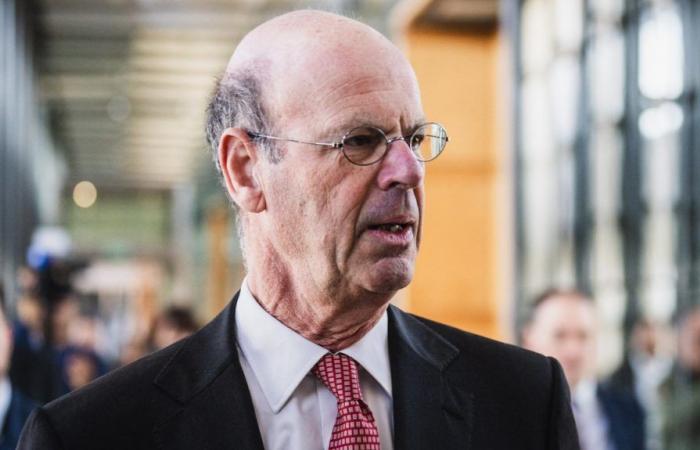Sophie Primas had announced the color on March 26, 2025. The preparation of the 2026 budget will be “A nightmare”warned the government spokesperson: “Putting the state deficit from 5.4 to 4.6 % of GDP, plus cope with new resetting and investment challenges in our defense, these are difficulties that are added. »» The customs duties imposed by Donald Trump complicate the complex responses to be given to a crucial question posed in simple terms: where to find 40 billion euros to be entrenched in the 2026 budget?
To do this, François Bayrou commissioned his ministers Eric Lombard and Amélie de Montchalin, respectively responsible for the budget and public accounts, to organize, Tuesday, April 15, a conference on public finances. Parliamentarians, representatives of social security and local communities are invited to draw tracks. The association of mayors of France said on Monday that it would not participate. “No agenda or working document has been provided”denounced the AMF. “This allows you to prepare the spirits for what awaits us. The budget will happen quickly so as much to put the subject quickly on the table ”, Judge Mathieu Plane, economist and member of the French observatory for economic conjunctures.
“To question the tax counter-revolution”
The budgetary context is known. INSEE has the rate of compulsory levies at 43 % of GDP; Public spending 57 % of GDP and revenue at 51 %. The Court of Auditors pointed out in a report published in February a deficit of 175 billion euros in 2024, with “Revenue below expectations, including corporate and VAT tax, while the dynamics of local administrations expenses has exceeded the objectives”. “The situation follows the Cavid crisis, energy and there have been tax reductions during the first five -year term of Emmanuel Macron without being necessarily funded”continues Mathieu Plane.
For Eric Lombard, most of the budgetary effort must consist of a reduction in state expenditure. The “common base” is largely reluctant to increase taxes. “The government tends to focus on reducing expenses to reduce the deficit. But it is attributable to a historical drop in revenue. We are talking about two GDP points, or 60 billion euros ”Grins Christophe Ramaux, lecturer at the University of Paris 1-Panthéon-Sorbonne. “We must question the fiscal counter-revolution which has mainly benefited companies and the richest, the two are linked. There was the abolition of the ISF, the housing tax, it was still 20 billion euros ”he points out.
Pensions and social security in the viewfinder
The Prime Minister has expressed his desire to increase the employment rate of seniors and proposals for discounts. “The salaries of civil servants represent a quarter of public spending, social benefits (mainly pensions) more than half and the remaining quarter are allocated to investment, lists the economist. These are 200 billion euros in business and investment aid. »»
On the government side, we rather plan to examine pensions, VAT or social security. This could consist of the uninindexation of retirement pensions on inflation or the abolition of a tax niche (a reduction for professional expenses). “It is a tax expenditure which represents four billion euros per year. If it is deleted, it is necessary to increase taxes for retirees therefore necessarily, this impacts their purchasing power ”explains Mathieu Plane. Reduce the operating budgets of ministries again? “In the sovereign and teaching, we need people. It’s complicated to do much better with less. »» Lighten the administrative millefeuille? “It is not done overnight and a territorial reform, it can be more expensive”he continues. Learning, whose practice has exploded in recent years, could also be concerned: “We will have to make an effort, but it should not be done at the expense of everything else. You have to put everything on the table. To say that we will not increase taxation, it seems difficult. »».
Christophe Ramaux goes further: “The solution is the new recipes. »» For the economist, “We must always assess public expenditure” more “Other things are expensive, such as the 80 billion euros in exemption from social security contributions, taken care of by the State”. Anyway, these 40 billion euros to find in an emergency will only be one of the elements to take into account to build the next budget. The 2025 edition included exceptional contributions, for 10 billion euros. “If they are not extended, they will have to be found elsewhere. We will also have to compensate for the effort for the defense. The question is how the sacrifice will be distributed ”. In the polarized political context of the moment, the term of ” nightmare “ is not excessive.








